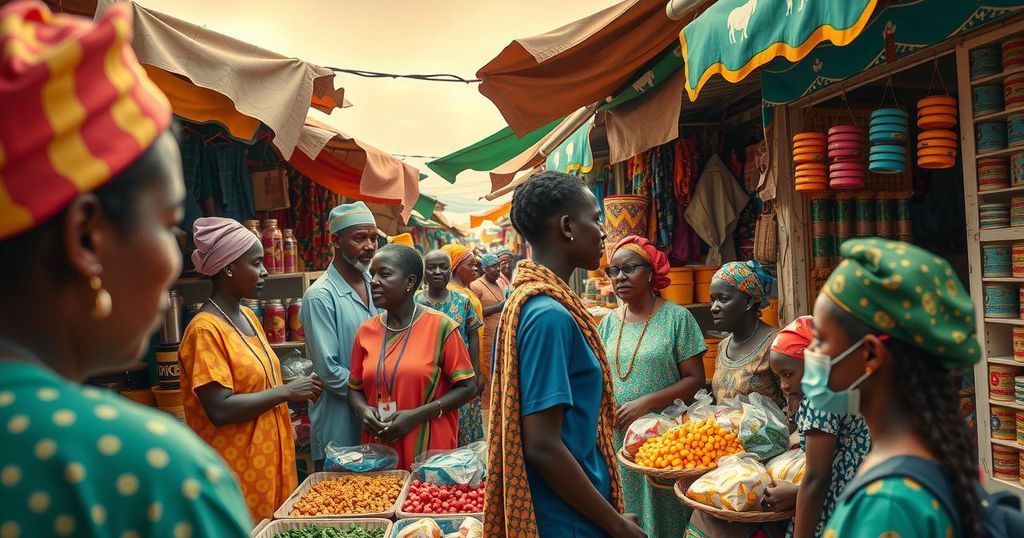Nigerian consumer choices are driven more by emotional triggers than rational deliberation. Key factors include the Community Validation Effect, Resilience Premium, Respect Recognition Factor, and Future-Proof Investment Mentality. Successful businesses must address these emotional needs authentically to cultivate brand loyalty and thrive in Nigeria’s dynamic market.
In Nigeria, consumer choices are often perceived as rational decisions; however, powerful emotional triggers subtend these choices. For instance, the success of Guaranty Trust Bank’s Fashion Weekend and Food and Drink Festival is a testament to how understanding cultural relevance and community experiences can significantly enhance customer perception and growth. This indicates that banking transcends mere transactions, as it embodies a sense of belonging.
Nigerian consumers showcase patterns that frequently diverge from conventional economic reasoning. Their choices often reflect emotional triggers that activate psychological responses, bypassing logical decision-making processes. This phenomenon is evident in daily market interactions, where purchases are driven by community conversations, a mechanism I refer to as the “Community Validation Effect.”
This effect demonstrates that consumers do not buy products solely as transactions; they express social signals through their purchases. Successful local businesses, like Dangote Cement, thrive by crafting purchase experiences that foster community support, often proving more influential than mere quality considerations. Choosing Dangote is complex; it symbolizes alignment with national growth, transcending functional benefits.
Another emotional factor is the “Resilience Premium,” where Nigerians exhibit a willingness to pay extra for durable products that adapt to local challenges. The Nokia brand serves as a prime example; its longevity and durability during power outages created an emotional attachment among consumers, reflecting their preference for reliability over purely modern features.
Additionally, the “Respect Recognition Factor” influences purchasing decisions significantly. Nigerians gravitate toward brands that reflect prestige, such as Hennessy and Moët & Chandon, particularly during celebrations, as these choices provide emotional value through status signaling, despite higher prices.
The idea of a “Future-Proof Investment Mentality” also prevails in Nigerian consumer behavior. This mentality emphasizes potential future adaptability over present utility. Products like DSTV maintain strong market positions not just for their current offerings, but also for consumers’ belief in their future value, leading them to prioritize emotional security over immediate costs.
Successfully addressing these emotional triggers is crucial for businesses in Nigeria. Companies can cultivate brand loyalty by genuinely connecting with the emotional needs underlying consumer behavior. Indomie’s success stems from marketing strategies that resonate with family values and resilience, rather than simply emphasizing product superiority.
In conclusion, the intricacies of Nigerian consumer behavior reveal that choices are often embedded in emotional contexts shaped by culture and community. Businesses seeking to thrive must prioritize understanding these deeper emotional currents rather than relying solely on advertising budgets. Doing so will allow them to navigate and resonate with the complexities of Nigerian life effectively.
In summary, the Nigerian consumer landscape is profoundly shaped by emotional triggers that govern purchasing decisions. Understanding these psychological factors—namely the Community Validation Effect, Resilience Premium, Respect Recognition Factor, and Future-Proof Investment Mentality—enables businesses to foster genuine connections with consumers. By appealing to these emotional needs and embedding cultural relevance in their strategies, brands can cultivate loyalty and succeed in the competitive Nigerian market.
Original Source: businessday.ng






